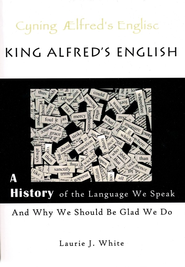
.
Grading Essays Made Easy |Homeschool Life | Literature | Miscellaneous
Proofreading Tips | Writing Prompts
Writing/Teaching Tips | All
.
 Want homeschool writing tips? Encouragement? Help grading those essays? Practical advice for your homeschool writing class? Insights into literature? Free writing prompts and tutorials?
Want homeschool writing tips? Encouragement? Help grading those essays? Practical advice for your homeschool writing class? Insights into literature? Free writing prompts and tutorials?
Whether your student is reluctant or brimming with excitement, you’ll find solid, proven ideas here that will make your teaching life easier. And take advantage of the many writing prompts and tutorials posted here.
Subscribe to Writing with Sharon Watson and receive three FREE writing lessons. Just use the subscription form in the column to the right.
Be sure and browse the weekly writing prompts for middle schoolers and high schoolers.
This page may contain affiliate links..
For the Love of Narnia and Middle Earth
SHARON’S BLOG
Narnia and Middle Earth—what delightfully intriguing places to visit!
Enjoy this compilation of activities involving C. S. Lewis’s Narnia and J. R. R. Tolkien’s Middle Earth.
Suitable for anyone who is old enough to read The Lion, the Witch, and the Wardrobe, other Narnia tales, The Hobbit, or The Lord of the Rings.
Your students haven’t read those books? No problem. Many of the prompts and tutorials below are freestanding and don’t need the original books.
Ready? Put on your magic rings! (more…)
Olympic Fun
SHARON’S BLOG
Involve your students in the excitement and issues surrounding the Winter Olympics with these six fun prompts and two bonus ones.
What would the Olympics look like in the Middle Ages? In Ancient Roman times? What new sporting event will your students cook up? Should countries and their athletes be banned? And what kind of music could athletes compete to or be inspired by?
Don’t miss the extra links to more sporting fun at the bottom of this post!
Designed for grades 5-12.
Ready? (more…)
7 Quotations to Ponder
Quotations are rich wells in which to dip our pens. Give your 7th – 12th graders something to ponder with these intriguing, thought-provoking quotations. Most of these quotations come from famous people and are accompanied by more than one writing prompt, so your students have many options open to them.
Opinions are the easiest paragraphs and essays to write, and your students have loads of opinions. Let them organize their thoughts and write some opinions based on any of the following quotations.
Dig in! (more…)
What Is Your Theory of Happiness?
Would any of your sentences ever sell for $1.56 million? That’s what happened recently with Albert Einstein’s one-sentence “Theory of Happiness.”
The story, according to USA TODAY, is that Einstein was visiting Japan to receive his Nobel Prize in physics in 1922 when he did not have enough money to tip a messenger. What did he do?
He wrote down one sentence and signed it, saying that it would be worth a lot of money someday. Looks like he was right! (more…)













